
New Jersey
Essex County Kitchen Remodeling: Cost, Design, and Permit Guidance
11.11.2025
Our New Year savings event is here: Get up to $6,500 off your project today (terms apply).

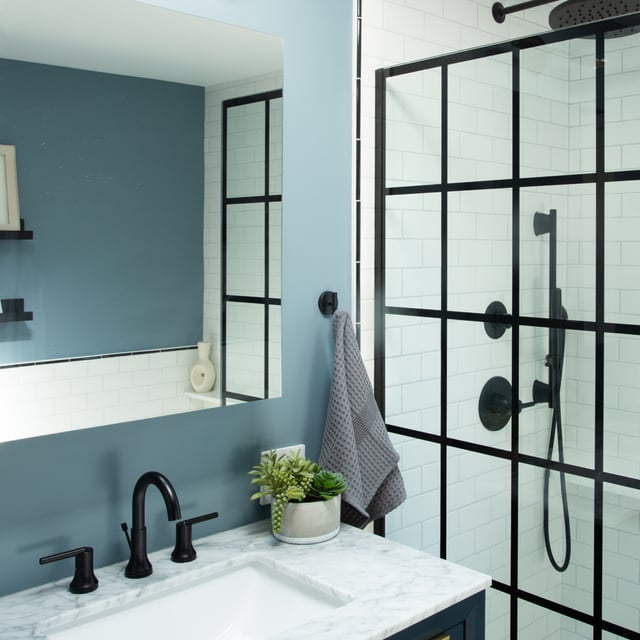
In This Article
A bathroom remodel only runs smoothly when the team behind it is in sync. For everything to function as beautifully as it looks, your contractor needs to keep plumbers, electricians, tile setters, and inspectors in alignment.
In Bergen County towns like Ridgewood, Paramus, Fort Lee, Hackensack, and Tenafly, that coordination is even more critical. Aging plumbing, multi-family layouts, and local inspection schedules can complicate timelines. The right contractor knows how to navigate it—sequencing subs, booking inspections at the right moments, and keeping you informed every step of the way.
Block pairs homeowners in Bergen County and North Jersey with only the best contractors, allowing them to skip the hassle and heartache of hiring under-qualified builders. However, our services offer so much more:
Design a Home That’s Uniquely Yours
Block can help you achieve your renovation goals and bring your dream remodel to life with price assurance and expert support.
Get Started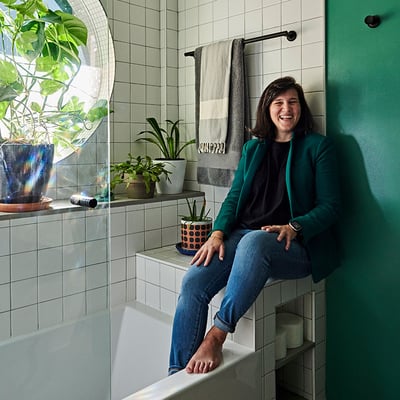
In Bergen County, expect your bathroom remodel to cost more than it would in other parts of New Jersey. As a planning baseline:
Block’s Renovation Studio can provide budgeting estimates specific to Bergen County, and to your bathroom’s size and your remodeling goals.

In Bergen County, a well-executed mid-range bathroom remodel typically returns 60–70% at resale. But the strongest returns don’t come from flashy upgrades—they come from getting the fundamentals right. Buyers notice what feels solid and works without fuss: proper waterproofing, reliable plumbing, and quiet, effective ventilation.
Adding a full bath can drive even more value, especially in single-family homes where an extra bathroom changes how the space functions day to day. To make your renovation count, focus on what lasts: durable tile, quality valves, smart storage, and clean, timeless finishes. Skip the ultra-custom details that don’t always translate into broader appeal.
Not sure how to begin your renovation?
Get free, expert guidance from a dedicated Block Project Planner who can help you navigate proposals, timelines, contractor selection, and more.
Book A Free Consultation
Many pre- and mid-century Bergen County homes still have galvanized supply or cast-iron drains that are ready for replacement. Tackling shutoffs, traps, and venting while walls are open improves performance and reliability.
An additional full bath eases morning bottlenecks and adds resale appeal, especially for growing Bergen County families. Space often comes from reworking closets, capturing part of a large bedroom, or finishing a code-compliant basement area.
For more tips, check out How Much Does It Cost to Add a Bathroom to a House?.
Older baths frequently lack effective exhaust, leading to peeling paint and grout failure. Upgrading fans and sealing assemblies protects finishes and air quality. In Bergen County’s tighter homes and multi-family buildings, better moisture management also helps prevent odors and humidity from spreading to adjacent rooms.
Many Bergen households prefer a safer, larger shower in primary suites. This upgrade improves accessibility and daily comfort. It can also refresh the look of an older bath and reduce maintenance by eliminating difficult-to-clean tub ledges.
Pre-war footprints and 5x8 layouts reward smart storage. Clear counters make small rooms feel bigger. Thoughtful cabinetry and hardware choices can add capacity without crowding circulation paths or blocking doors.
Creating an accessible bathroom can make daily routines safer and more comfortable for everyone, and it’s especially valuable for multigenerational Bergen County homes or individuals looking to “age in place.”
Turn your renovation vision into reality
Get matched with trusted contractors and start your renovation today!
Find a Contractor
Block has only invited the best of Bergen County bathroom remodelers to join our network—licensed, insured professionals with proven craftsmanship and strong homeowner reviews. Each contractor is vetted for code knowledge, scheduling reliability, and clean, durable work in real Bergen County homes, from Ridgewood and Glen Rock to Fort Lee and Paramus. Before a bid ever reaches you, scopes are reviewed by renovation experts to flag missing line items and risky assumptions, helping you compare apples to apples. During construction, you’ll have clear communication, milestone-based payments for visible progress, and the backing of a one-year workmanship warranty from your contractor.

Written by Block Renovation

Renovate confidently with Block
Easily compare quotes from top quality contractors, and get peace of mind with warranty & price protections.
Thousands of homeowners have renovated with Block

4.5 Stars (100+)

4.7 Stars (100+)

4.5 Stars (75+)

New Jersey
Essex County Kitchen Remodeling: Cost, Design, and Permit Guidance
11.11.2025

New Jersey
Essex County, NJ Bathroom Remodeling: Expert Guidance & Contractors
11.11.2025
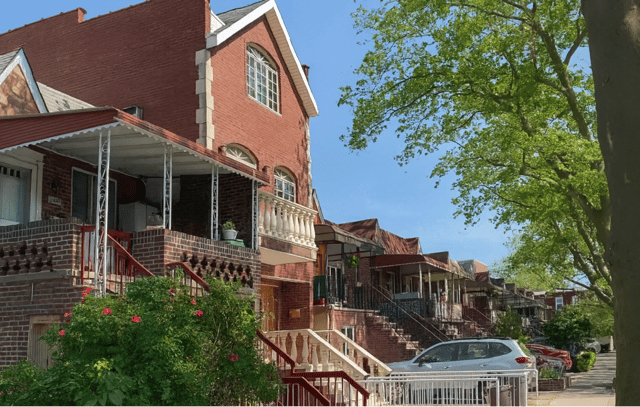
New Jersey
Kitchen Remodeling for Cliffside Park NJ Homes
10.22.2025
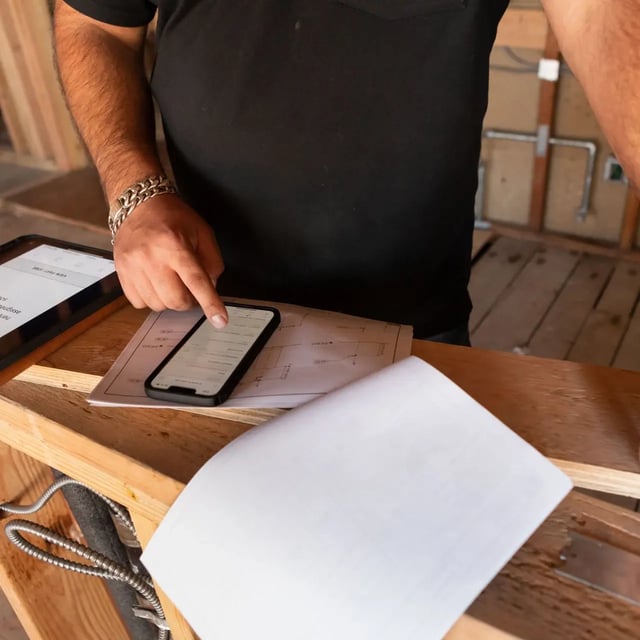
New Jersey
Hoboken NJ Home Remodeling: Bathrooms, Kitchens & More
10.22.2025
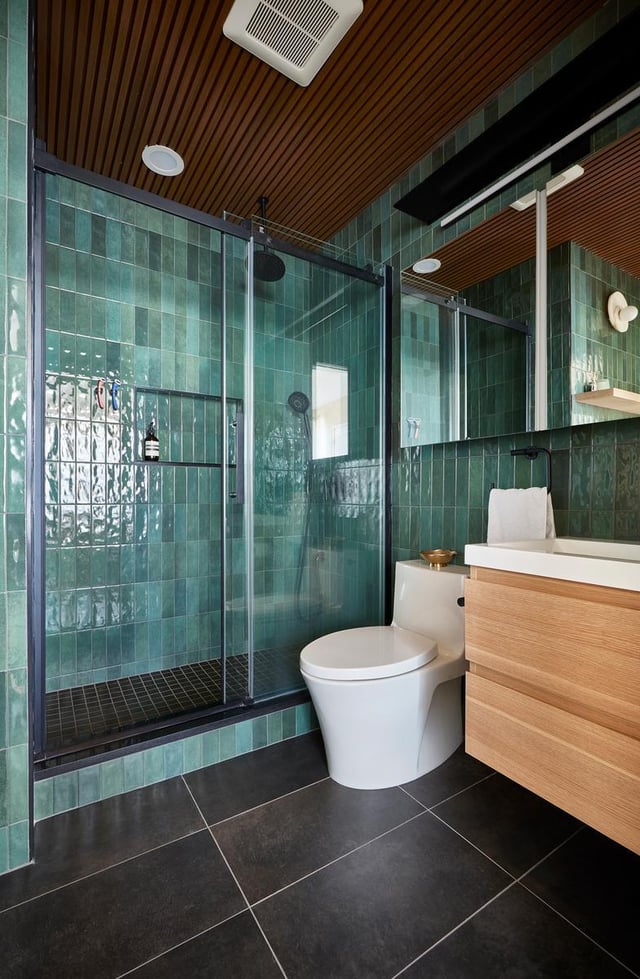
New Jersey
Jersey City Bathroom Remodeling Solutions & Inspiration
10.22.2025
Renovate confidently